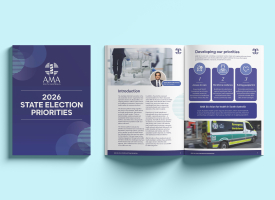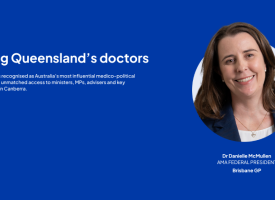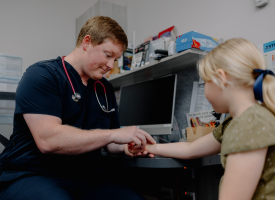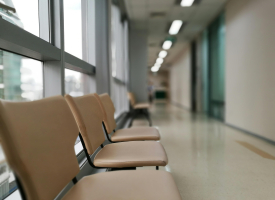Transcript: ABC Riverland - New AMA SA President's regional focus
New AMA SA President Associate Professor Peter Subramaniam, explains his commitment to strengthening regional healthcare, particularly in the Riverland, by focusing on workforce resilience and reducing system complexity. In conversation with Matt Stephens, he highlights his long-standing connection to the region and outlines his vision for supporting both new and experienced doctors across South Australia.
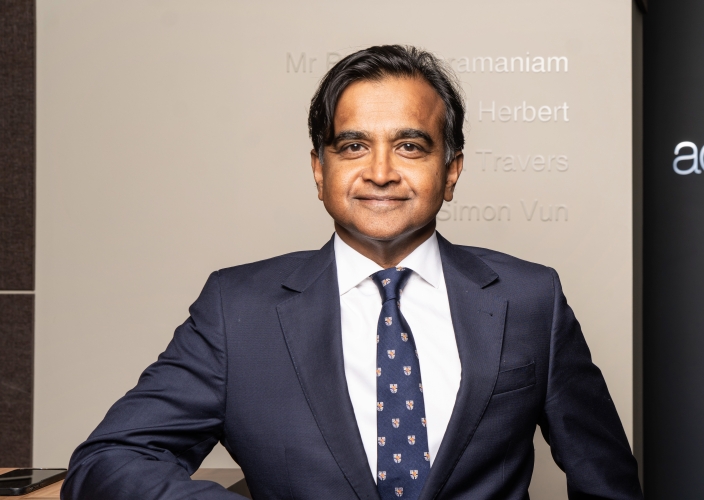
Transcript: AMA SA President Associate Professor Peter Subramaniam on ABC Riverland with Rory McClaren.
(26 May, 2025)
Subjects: workforce sustainability, workforce planning, rural healthcare, leadership
Matt Stephens: In line with their constitution, every two years the Australian Medical Association changes their leadership to ensure fresh ideas and perspectives. Dr John Williams has wrapped up his tenure, and the new president has a link to the Riverland, having consulted at the Riverland General Hospital. Associate Professor Peter Subramaniam is the new president of the AMA SA branch. Peter, good morning.
Associate Professor Peter Subramaniam: Matt, and good morning to your listeners.
Matt Stephens: So do you still consult at the hospital in Berri?
Peter Subramaniam: I sure do, and I also operate there, Matt. I've been coming up since 2001, so I'm looking for my quarter century of continuous service next year.
Matt Stephens: Wow, that's fantastic. So having some experience in regional areas and going into this particular role with the AMA, do you feel confident you'll be able to represent all doctors around the state?
Peter Subramaniam: Yes, absolutely. The Riverland, as I know from experience, is a resilient community. In fact, I should say we are a resilient community. After 24 years of visiting, I don’t know if I could be considered a local—probably not.
Matt Stephens: We'll give you an honorary title there.
Peter Subramaniam: [Laughs] Thank you. The doctors who work in the Riverland region—not just in Berri, but also Barmera, Renmark, Loxton, Waikerie—are the backbone of regional care. I’ve seen many dedicated GPs, GP specialists, and visiting specialists serve for a long time. That generation is changing, though. Many pioneer doctors are retiring, and we’re attracting a new generation. We need to support them, understand what they want, and ensure they stay in the Riverland.
Matt Stephens: So Peter, how did you come to be taking on the president's role with the AMA?
Peter Subramaniam: The AMA is a long and proud organisation. We started in the 1950s as the British Medical Association. Before APRA and the medical board, the AMA had an oversight role, managing complaints and so on. I joined the AMA as a young specialist 18 years ago and gradually got involved in management and advocacy. I served on the council. We have regional representation—one of our local surgeons in Berri, Dr Chetan Pradhan, has just joined the council. So we’ll continue to have strong rural and regional voices.
Matt Stephens: Nice. Good to know. Are there any particular projects you want to work on over the next couple of years?
Peter Subramaniam: Two years isn’t a long time, Matt. My vice president, Dr Louis Papillon—a younger anaesthetic specialist—and I discussed our focus. In metro areas, the big issue is ramping. But we want to look beyond that. The Riverland is ideal for focusing on workforce resilience. You can have all the initiatives and innovations, but without the right number of doctors in the right places, you can’t deliver care. We want to focus on not just attracting new doctors, but keeping them happy and effective in their communities.
We also want to reduce complexity. Many patients and doctors face barriers—paperwork, systems—that get in the way of care. Doctors want to treat patients, and we want to help make that easier. And of course, we’ll continue to support rural and regional doctors, building on the work of Dr John Williams, my predecessor.
Matt Stephens: Good to see. So you mentioned it before, describing it as the backbone, but what do you think is the effectiveness of health services in smaller locations?
Peter Subramaniam: It’s a balance. As a visiting specialist, there are things I can safely do in the Riverland and things I can’t. But I serve as a link between Riverland patients and more complex care in the city. If we create better links between specialist GPs—many of whom are very talented and hardworking in the Riverland—and specialist services, we can improve outcomes significantly.
